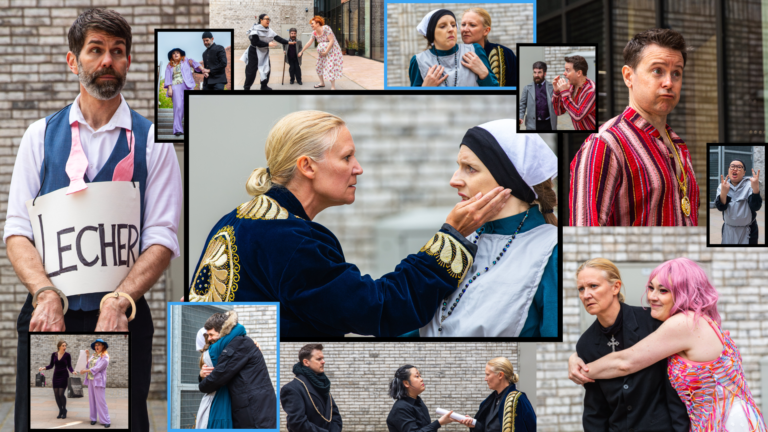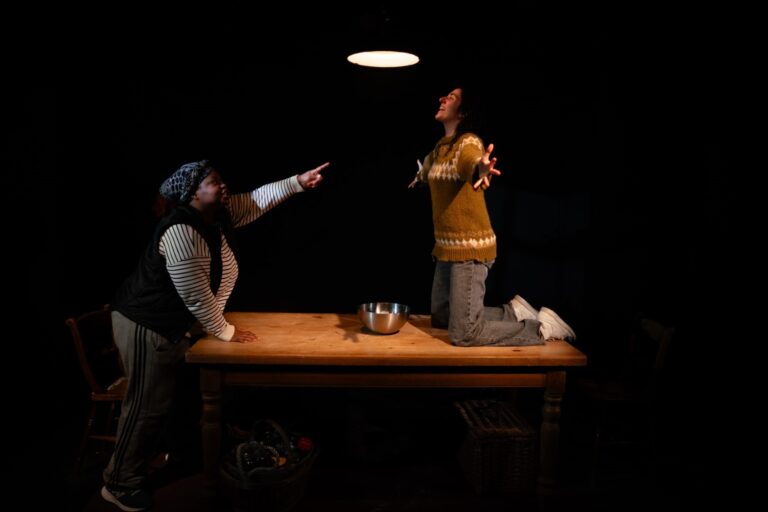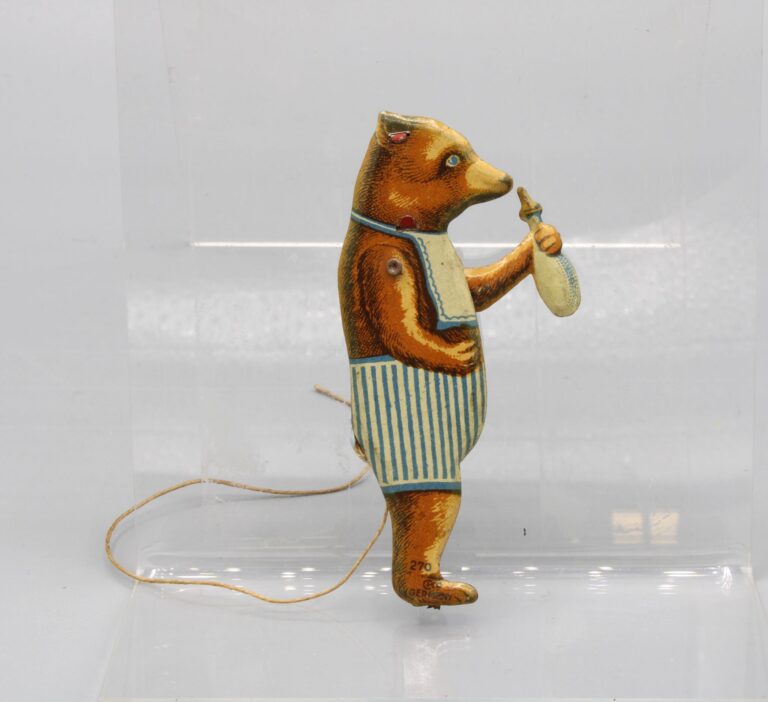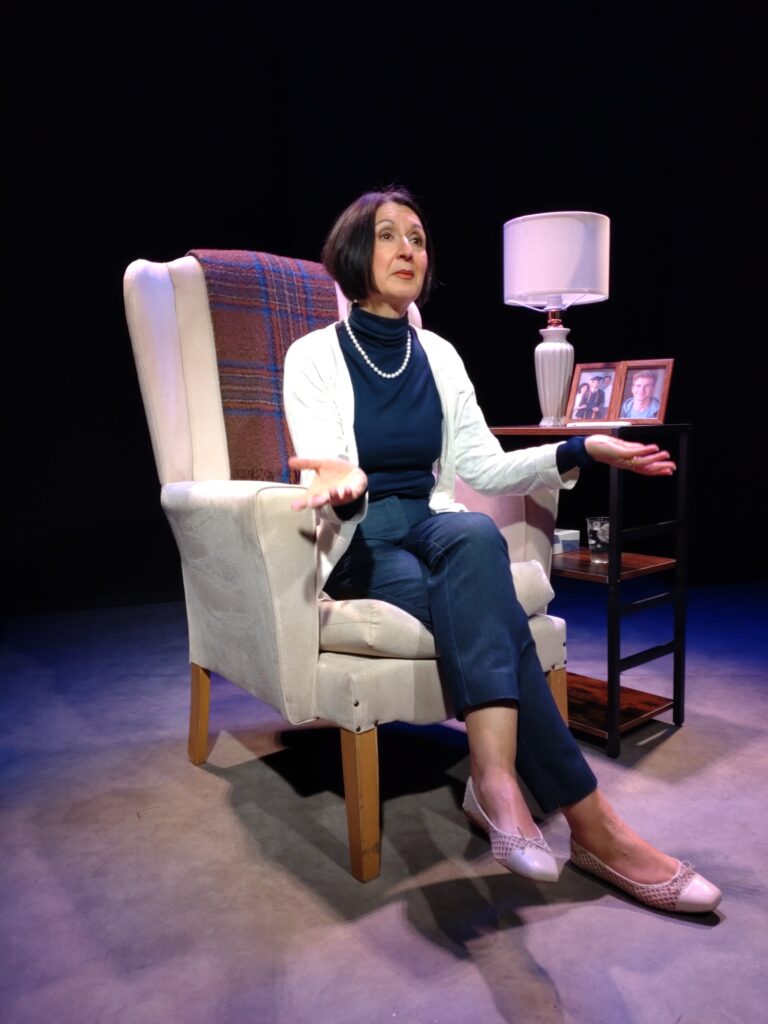I knew it was Christmas when the orange seller approached me by the stage and offered up her wares – oranges and mince pies, but no humbug from this street trader. That would soon come in this version of Dickens’ A Christmas Carol, remarkably scripted by Jack Thorne, writes Michael Holland…
With an extension added to the stage that cut a pathway right through the stalls, the action was brought into the heart of the audience, and that action began with some jolly Christmas cheer before Ebenezer Scrooge dragged us down to his level of misery by sending carol singers packing while rejoicing the fact that ‘the treadmill and the Poor Law are in good vigour’.
As Scrooge watched them run away from his abhorrence of being nice, his late business partner Jacob Marley returned from the dead, dragging 60 feet of heavy chain and an eternity of torture for the hardship and torment he had placed on others through the firm’s money-lending. After he had begged Scrooge to change his ways his chains dragged him off at an alarming pace.
It was not long before the first of the three ghosts of Christmas came to terrorise Ebenezer, but this time they seemed different. This time they did not appear so ghostly but compassionate.
This time the reason why Scrooge became the man he was is made much clearer; we were shown his errors of judgement and the mistakes he made as a younger man. We see the mental and physical abuse he suffered from a father who could not live within his means and took the consequences of his actions out on his family.
https://southwarknews.co.uk/news/free-christmas-event-in-elephant-this-weekend/
A father obsessed with money, who constantly told his son that he would amount to nothing, reared a man filled with that same obsession and filled with bitterness at the happy life he had forsaken to please his father; a life littered with those he had once loved but abandoned in a quest that could only end in sadness. His sister told him, ‘You cut out all that you love’, and one of those was Belle, his one-time girlfriend.
Nevertheless, Scrooge had become to like the person he was – he even had a sense of humour. One, though, that only made no others but himself smile, which meant that as the ghosts showed him the error of his ways, he still struggled against the change they were looking for.
It was only when the Ghost of Christmas Future makes him watch who attends his own funeral that he realises they are not just there to make sure he is dead; he sees true love within them, the love that he once enjoyed but spurned.
In this version we see much of A Christmas Carol’s complexities sidelined and replaced with Dickens’ truth because this was a book that he had written not just from the heart but from lived experience.

Owen Teale as Ebenezer Scrooge gives a flawless performance. His joy when rediscovering himself was our joy. Teal, though, was ably supported by everyone else in this production who were all at the top of their game: Alastair Parker as Fezziwig, Lydia White as Belle, Roger Dipper as Bob Cratchit, the list goes on.
Christopher Nightingale’s music, plus a number of well-known carols, provides a soft foundation for the drama to be acted out on, rarely coming to the fore but always there as another voice.
And there was snow. Real snow! Or as real as you are going to get in a theatre. But this was real inasmuch as A Christmas Carol was all being played out in Southwark near where Dickens lived and worked in a factory, near where his father went to Marshalsea, the debtors’ prison, near where many Dickens’ characters walked the very same streets us locals walked. Fiction? Yes, but the stories are mainly based on the harsh facts of Victorian life and times, an era that needed the love and compassion from philanthropists and benefactors to help the poor and needy.
Like fireflies, a thousand lanterns hung above the stage played an important part throughout the play as they became the dark as well as the light. But below the lamps, a story of true redemption, of real poignancy, and of hope for the future was performed in a production that Charles Dickens would be very proud of.
It is the best version I have ever seen. I was moved by it in the theatre, I am still moved by it now as I write this.
The Old Vic, The Cut, SE1 until January 7th. Times vary. Admission: £12 – £67.50
Booking: www.oldvictheatre.com






